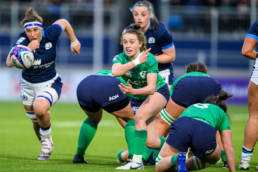For many years, TWIN has been lecturing at the University of Salzburg. With the start of this academic term, our teaching contract was further extended.
Since 2016, we hold a lectureship on “European Sport Policy & Sport Organisation” in the master’s degree programme Sports-Management-Media. This degree is divided into the following core areas: methods of sport science, economy and sports, sports management, management, media and law, sports, politics and communication, academic research skills.
Since the current study year, TWIN also teaches future sport professionals in the university’s academic course Sports journalism.
“The education of young academics on the multilayer impact of sport is a crucial factor for future policy steps on European level. Thus, our lectures focus on helping students comprehend socio-economic contexts around the most recent EU developments in sport.”
Wolfgang Stockinger, TWIN Founder & CEO
A brief history of EU sport policy
For a long time, sport appeared to be a cross-sectional matter influenced by individual initiatives and trend-setting European Court of Justice decisions (such as the infamous Bosman ruling in 1995). In contrast, the story of sport as a designated policy area is short.
Building on the EU White Paper on Sport in 2007 and, following, the Treaty of Lisbon, the European dimension of sport has been gradually taking shape. The implementation of the funding programme Erasmus+ Sport and the launch of the European Week of Sport are examples of positive developments in the last decade.
Despite these important steps on policy level, sport remains one of the most underestimated sectors regarding its potential to contribute to key objectives of the EU. Not appearing anymore in the title of a European Commissioner’s portfolio, sport is now part of two departments: “Innovation, Research, Culture, Education and Youth” of Commissioner Ivanova and “Promoting our European Way of Life” of Commissioner Schinas.
Milestone Erasmus+
Today, the key themes of the EU Work Plan for Sport 2021-2024 serve as guidelines for European project calls and activities:
- Protect integrity and values in sport
- Socio-economic dimensions of sport
- Promotion of participation in sport and health-enhancing physical activity
Particularly Erasmus+ offers new opportunities to a wide range of beneficiaries. TWIN is currently involved in the cooperation partnership HerForm (as project partner).
•
•
•
References & Links
- Council of the European Union (2020): EU Work Plan for Sport 2021-2024
- Sport and Citizenship (2019): Still, a long way to go for sport




